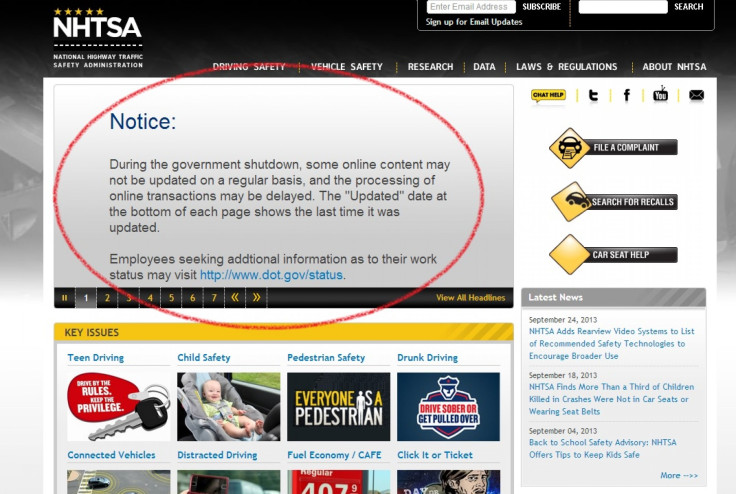Survey: One In 4 US Car Buyers Say Government Shutdown, Debt Ceiling Fiasco Have Affected Their Purchasing Decisions; Most See Interest Rates Rising On Financing

Will October’s U.S. auto sales be affected by the government shutdown and the debt-ceiling showdown?
A survey released Monday from auto pricing and information provider Kelley Blue Book suggests that nearly one in five car buyers is waiting to see how the partisan showdown in Congress plays out before making a car purchase. A majority see interest rates rising over the next year, though 52 percent see them going up only marginally, while 8 percent see them rising significantly.
“The ongoing government shutdown poses risk to the ongoing recovery in new-vehicle sales,” said Alec Gutierrez, senior analyst at Kelley Blue Book. “In fact, 18 percent of the KBB.com site visitors [who] participated in a recent survey indicated they planned to delay their new-vehicle purchase until the issue was resolved.”
September saw a significant drop in new-auto sales, albeit mostly due to an unusual calendar this year that caused crucial Labor Day holiday weekend sales to be counted in August instead of September, which led to fewer key selling days that month. The question is, will the political showdown in Washington suppress October sales as the auto sector continues to dig itself out of the recessionary crisis that sent deliveries to historic lows in 2009? In September, new-vehicle sales sold at a much slower pace than they did throughout the summer.
An extended government shutdown in October could lead to suppressed sales for the month, especially if a temporary fix is put in place, such as the one House Republicans proposed last week to extend the debt limit for six weeks. That’s because six more weeks uncertainty would likely cause many Americans to hold back on large purchases as they wait to see how the issue plays out. (This would also extend the debate into the peak retail shopping season.)
Adding to the auto industry's worries, the U.S. has until Thursday before it can no longer borrow money. If the U.S. defaults on its obligations, it would most assuredly have a significant negative impact on auto sales and the cost of consumer borrowing. Eighty-five percent of all U.S. new-car purchases are financed.
Here are the other results of KBB’s survey. The number of respondents varied by question, but most questions elicited 546 to 662 replies. All of them said they were considering buying a car in the next six months.
Eighty-two percent of these respondents said they were unaware that the government shutdown has halted safety inspections and incident investigations by the National Highway Traffic Safety Administration, which is responsible for verifying automakers’ safety claims, pressuring automakers to recall vehicles or issuing mandatory recalls. Upon learning that the NHTSA has not been operating during the shutdown, an overwhelming majority of respondents said they were concerned about that.
Sixty percent of respondents said they expect the cost of vehicle loans to rise in the next 12 months, while one in five said rates would remain the same.
Sixty percent of respondents said the U.S. economy would improve or stay the same, while the rest said they felt the economy would get worse. Seven percent of respondents said they would buy a car sooner out of concern that loans would be harder to obtain in the near future.
© Copyright IBTimes 2024. All rights reserved.






















